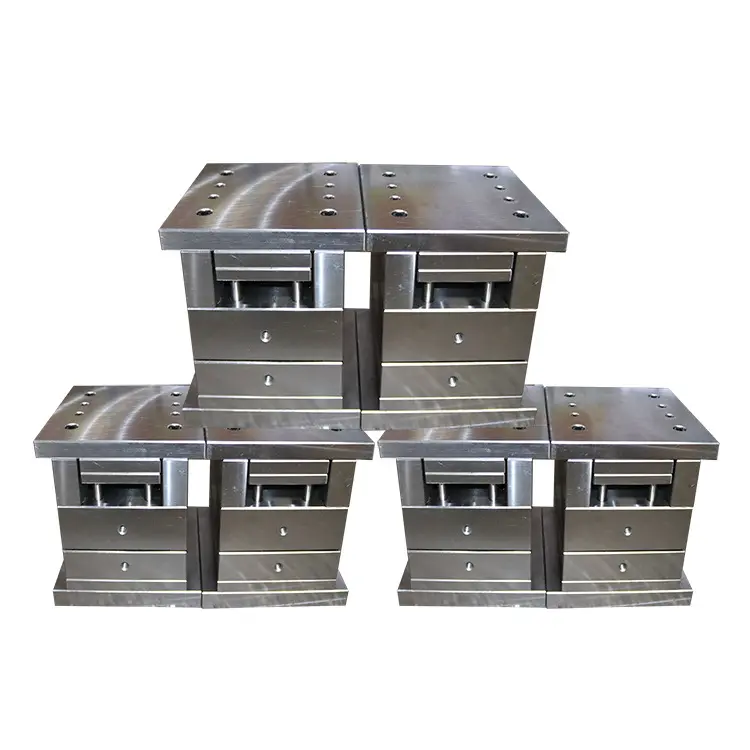Introduction to Mold Steel in Thailand
The Thai manufacturing industry is at a pivotal point, where innovations in materials can significantly impact productivity and competitiveness. Among these innovations, mold steel plays a crucial role in the production of high-quality molds, essential for various sectors including automotive, electronics, and consumer goods. Understanding the advantages of advanced mold steel and its applications can empower Thai manufacturers to enhance their operations.
What is Mold Steel?
Mold steel is a specialized form of steel engineered for the production of molds that shape materials into desired forms. Mold steel variants, including hot work and cold work steels, offer different properties tailored to specific manufacturing needs. The advancement in mold steel technology has led to improved hardness, wear resistance, and thermal stability, which are critical for high-performance molds.
Key Advantages of Innovative Mold Steel
Embracing the latest advances in mold steel can yield numerous benefits for Thai manufacturers:
- Enhanced Durability: Modern mold steels feature superior hardness and toughness, which extend the life cycle of molds and reduce the frequency of replacements.
- Improved Precision: The latest mold steel grades provide better dimensional stability at high temperatures, ensuring precise molding results.
- Cost Efficiency: Investing in higher-quality mold steel can reduce overall maintenance costs and lead to fewer production downtimes.
- Sustainability: Innovations in mold steel can include environmentally friendly manufacturing processes, aligning with global sustainability goals.
Types of Mold Steel and Their Applications
Understanding the different types of mold steel available can help manufacturers choose the best materials for their specific applications:
1. Hot Work Mold Steel
Hot work mold steels are designed to withstand high temperatures and are used in processes such as die casting. They exhibit excellent resistance to thermal fatigue, making them suitable for high-volume production runs.
2. Cold Work Mold Steel
Cold work mold steels are ideal for applications requiring high hardness and wear resistance. They are often used in processes involving sheet metal stamping and plastic injection molding.
3. Plastic Mold Steel
Specialized plastic mold steels offer excellent polishability and corrosion resistance, making them perfect for producing high-quality plastic components.
Case Studies: Successful Implementations in Thailand
Several Thai manufacturing companies have successfully integrated innovative mold steel into their production processes, yielding excellent results. Here are a couple of notable examples:
Case Study 1: Automotive Parts Manufacturer
An automotive parts manufacturer in Thailand switched to advanced hot work mold steel and reported a 30% increase in productivity. The improved durability of the steel reduced production interruptions, allowing for a smoother workflow.
Case Study 2: Electronics Component Producer
A company specializing in electronic components incorporated high-performance cold work mold steel into their manufacturing processes. As a result, they achieved better dimensional accuracy and reduced the rejection rates of molded components by 20%.
Choosing the Right Mold Steel Supplier
Selecting a reliable mold steel supplier is crucial for manufacturers looking to adopt these innovations. Here are some factors to consider:
- Quality Assurance: Ensure the supplier complies with international standards and has certifications for their products.
- Expertise: Choose suppliers with a strong background in mold steel and a proven track record within the industry.
- Local Support: A local supplier can provide quicker services, including technical support and timely delivery.
Future Trends in Mold Steel Innovation
The future of mold steel looks promising, with ongoing advancements that will further benefit the Thai manufacturing industry. Some emerging trends include:
- Advanced Coating Technologies: The development of advanced coatings can enhance the performance of mold steel by improving its resistance to wear and corrosion.
- 3D Printing of Molds: The use of 3D printing technology to create molds offers a new level of customization and rapid prototyping, which could revolutionize manufacturing processes.
- Sustainable Materials: There's a growing push for sustainable alternatives that minimize environmental impact, which can transform the sourcing of mold steel.
Conclusion: Embrace the Change in Mold Steel
As the Thai manufacturing industry continues to evolve, investing in innovative mold steel solutions is not just beneficial; it is essential for maintaining a competitive edge. By leveraging advanced mold steel technology, manufacturers can enhance productivity, sustainability, and product quality. The time is ripe for the Thai market to embrace these innovations, ensuring a prosperous future for the industry.

